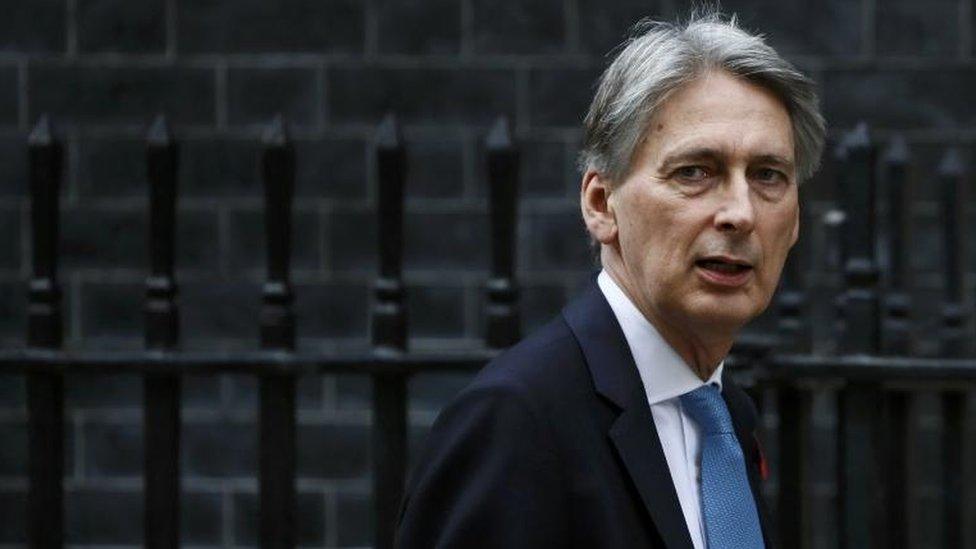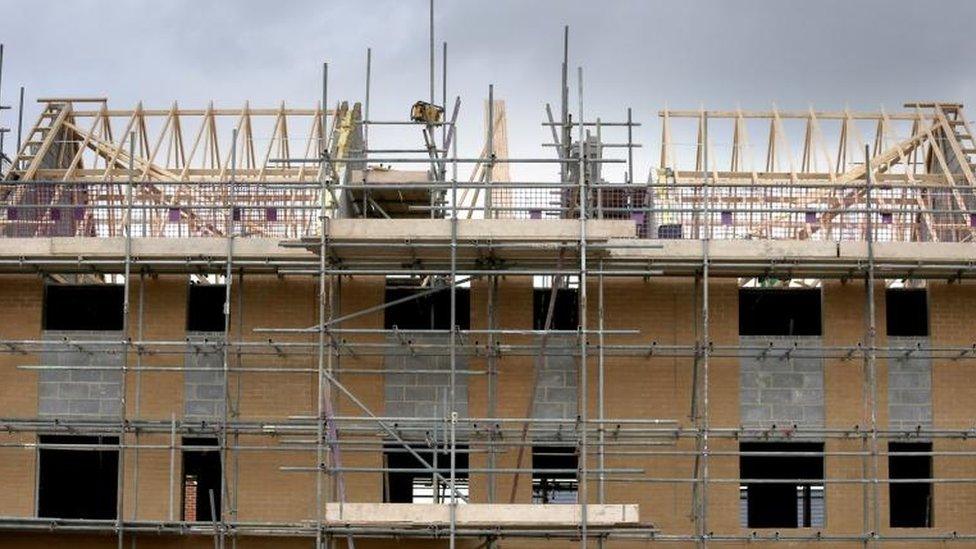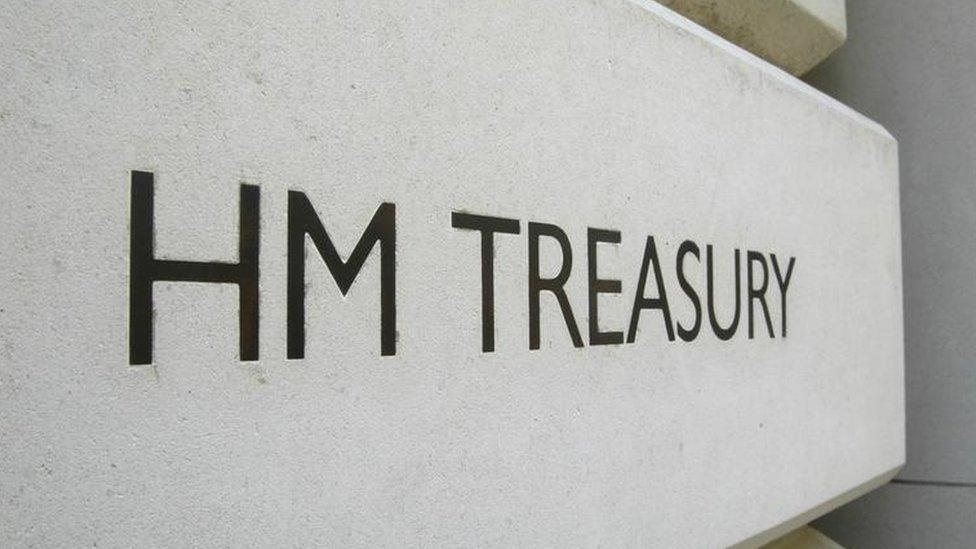The chancellor’s debt headache
- Published
- comments

In politics - where long-term strategy often goes no further than wondering what policy you are going to cobble together to announce next Monday - the chancellor and the prime minister are playing a rather longer game than the headlines suggest.
Their focus is 2020 and the next general election - if the triggering of Article 50 and Britain's departure from the European Union doesn't derail Theresa May's plans not to go to the country until then.
That is why Wednesday's Autumn Statement will be a rather sober affair.
Sober, but not in any sense dull.
Twice a year the chancellor has a moment in the spotlight - an opportunity to lay out the prospectus for the British economy.
One is the March Budget, and one is the Autumn Statement.
Yes, this is an important Autumn Statement because it is Philip Hammond's first.
But it is not the most important he will deliver before 2020.
That will be the Autumn Statement presented to voters a few months before, in 2019.
If there really is anything significant to "give away", that will be the time to do it.
Consider everything that is said on Wednesday with that in mind. The election is still a few years off.
At the weekend, Philip Hammond told Andrew Marr the country's debt position was "eye-watering".
And he should know.
Slower growth, higher inflation
Last week, the chancellor received the final "locked" version of the report on the public finances by the Office for Budget Responsibility (OBR), the independent economic watchdog.
Its economic and fiscal outlook will be published alongside the Autumn Statement and will dominate much of the debate about Mr Hammond's economic policies.
It is likely to say four big things.
First, growth will be slower next year and in 2018 than previously forecast.
Concurring with most mainstream economic forecasts, the OBR is likely to say that growth next year will fall to around 1.4%, down from 2.2% predicted in March.
Second, inflation is likely to rise from its present 0.9%, echoing warnings from the Bank of England that the figure could hit 2.75% by 2018.

The Autumn Statement could see fresh efforts to support house building
Both changes will be delicately linked to the referendum result.
Slower growth because businesses are less certain about investing in the UK as the country negotiates its exit from the EU.
And higher inflation as the fall in the value of sterling increases the prices of British imports such as food and fuel.
Lower growth affects government income as a smaller economy means lower tax receipts.
Debt pile
And that leads to the OBR's third big point, that Britain's borrowing - the deficit - is likely to be higher over the next five years than previously forecast.
By 2020, the Institute for Fiscal Studies estimates that the government will be borrowing £25bn more than the OBR predicted in its last economic outlook in March.
Fourthly, the OBR will say that public sector net debt will rise significantly - by as much as £80bn by 2020, according to the IFS, a figure which could hit £100bn by the following year.
By the end of 2020, the IFS predicts public sector net debt will stand at £1.8 trillion.
It is worth saying that quite slowly. One. Point. Eight. Trillion. Pounds.

Austerity is still the watch word in the Treasury
Given it is unlikely the OBR will deviate much from the IFS figure - and what's a few billion pounds here or there among economic friends - that is the "eye-watering" figure to which Mr Hammond refers.
And is why the Treasury believes there is little room for largesse on Wednesday, particularly given that interest rates charged on that debt are likely to rise over the next few years as central banks look to "normalise" interest rate policy by raising rates and investors demand inflation protection (higher returns) on government bonds.
And why the most important section of Theresa May's speech to the CBI today was this.
"He [the chancellor] will show how, to maintain confidence and stability in our economy - we will continue to cut the deficit, reduce our debt, and return to a fiscal surplus in the years ahead."
Austerity remains
Anyone who thought the government would be changing the macroeconomic weather on Wednesday with significantly more spending is set to be disappointed.
There will be limited help for "just managing families", probably by raising the income tax threshold to £12,500, meaning that more lower income families are taken out of tax altogether.
There will also be a few billions of pounds of new spending on roads and supporting research and development by innovative new businesses.
I am also told that a new effort to kick-start the housing market will be a significant part of the Autumn Statement.
It will focus on encouraging local authorities to partner with smaller house builders to build social housing.
One idea under consideration is a government indemnity fund, with the government agreeing to underwrite (insure) billions of pounds of risk capital needed to support new house building.
For now, austerity is still the watch word in the Treasury.
If there is money to be spent, then the government is far more likely to target announcing it towards the end of the Parliament.
By then, at least, the terms of Britain's exit from the EU will be clearer.
The economic effects - both good and bad - more distinct.
And Mr Hammond will be facing a general election and a test.
Whether that prime ministerial pledge that the UK's economy must be shown to be "working for everybody" actually meant anything at all.